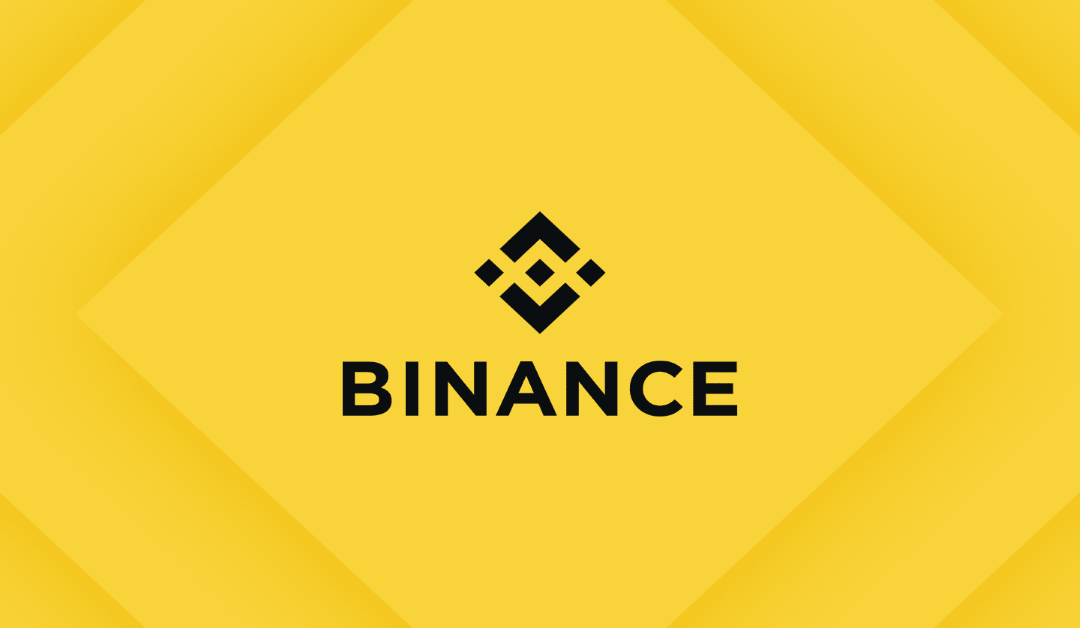
by Samuel Mbaki | Jun 28, 2023 | Cryptocurrencies, Regulation
Key Points
- US Presidential Candidate Robert F. Kennedy Jr has confirmed his support for Bitcoin again, saying that it prevents the manipulation of the Money Supply.
- Robert F. Kennedy has been expressing support for Bitcoin throughout his campaign, saying that US citizens need the freedom to invest in assets of their choice.
In a June 28 tweet, Robert F. Kennedy Jr expressed that he would support Bitcoin and ensure that all US citizens have the right to hold their Bitcoin and make it inviolable. He added that it is a nice tool to save US citizens from totalitarianism and manipulation of the money supply.
US presidential candidate Robert F. Kennedy Jr confirms his support of Bitcoin
Robert F. Kennedy Jr is a presidential candidate for the Democratic Party in the US and has come forwards so as not to be shaken by controversy. He recently challenged a debate on COVID vaccines and their effectiveness. He is also the first ever US president to accept Bitcoin donations for his campaigns.
He also has expressed his support for the world’s premier cryptocurrency, saying that US citizens deserve the right to hold and trade Bitcoin without government interference. On June 28, he posted a tweet reading.
“As president, I will ensure that your right to use and hold Bitcoin is inviolable. Bitcoin is not only a bulwark against totalitarianism and the manipulation of our money supply, and it points the way toward a future in which government institutions are more transparent and democratic.”
The tweet also came with a video that explained that his Bitcoin donations would be through the Lightning Network. He added that he would support people to own Bitcoin and holding their Keys like they hold keys for their cars and property.
He added that he wants to help the Bitcoin community continue with the dream as long as they turn to carbon-free power supply methods like recycling and re-using power. He added that he, however, doesn’t believe that the environmental impacts of Bitcoin should be used as a smoke screen to bar people from using it.
He also hit back at the government for the weaponization of money, saying that Bitcoin fights against this and upholds the rights that US citizens have been given by their constitution to have freedom over their possessions.
This development comes when lawmakers like Elizabeth Warren have called for an anti-crypto army to oppose the industry due to impacts on the environment and the dollar’s strength. In other news, regulators in the US are going hard after crypto industries without first putting workable regulatory frameworks.
However, only time will tell if the tide will change to pro-crypto in the country. Amid that, keep watching Fintech Express for updates on crypto and other Fintech-related stories.

by Samuel Mbaki | Jun 22, 2023 | Regulation
Key Points
- Ripple has confirmed that it has received “in principle” approval to offer digital assets services in Singapore
- The new approval allows the company to legally scale on-demand liquidity for XRP users in the country
Ripple has scored another regulatory win as it acquires an in-principle license to serve customers in Singapore. The Monetary Authority of Singapore (MAS) approved the approval per a June 22 statement.
Ripple to legally scale on-demand liquidity for XRP in Singapore
Ripple officially allowed to use its subsidiary, Ripple Markets Asia Pacific, to further scale its On-Demand Liquidity. The ODL will help XRP Ripple customers move their cryptos around the world without banks’ intervention as intermediaries.
Ripple had applied for the institutional Payment license under Singapore’s Payment Service Act, with CEO Brad Garlinghouse praising the Singaporean regulator for its pragmatic approach to crypto regulation. He added that the city-state would provide a prominent gateway for Ripple’s business operations in the Asia Pacific region.
The firm’s Chief Legal Officer, Stu Alderoty, also weighed in on the matter, saying that Singapore’s “early leadership” will pave the way for other regulators to develop a clear crypto regulatory framework.
In his words, he said:
“MAS has built a workable framework that truly unites consumer protection, market integrity and innovation. They’ve also outlined a clear taxonomy to classify and regulate digital assets – making it possible for companies like Ripple to build and offer compliant products.”
“It’s been said many times, but bears repeating – regulatory clarity is what will help drive crypto utility for real-world use cases.”
This win comes when the firm is battling the US SEC in court for regulatory uncertainties. The firm is defending that XRP is not a security against a hawkish regulator that is going after crypto organizations vehemently. The US SEC has also started legal proceedings against Binance and Coinbase; however, the odds are getting smaller for its win after the expose of Hinman documents.
Hinman was a key executive of the regulator who showed arrogance and dismissal of law in a 2018 anti-crypto speech. Since then, the regulator has gone after different crypto organizations on claims that they were evading being regulated. As a result of public dissatisfaction, a bill has also been tabled to restructure the SEC and make its operations more transparent.
Keep watching Fintech Express for updates on crypto regulation and other Fintech-related developments.

by Samuel Mbaki | Jun 21, 2023 | Regulation
Key Points
- A group of US lawmakers has introduced a bill (National AI Commission Act) to establish a commission to oversee AI development and usage.
- The bill was introduced on June 20 in a bipartisan effort to make the AI industry safer.
US lawmakers are pushing a bipartisan bill (National AI Commission Act) to regulate the emerging Artificial Intelligence industry and catch up with competitors like the EU while dealing with the risks involved. The bill seeks to create a commission under the Federal government and oversee AI building, distribution, and usage.
US lawmakers pushing to Catch up with AI Regulation
The National AI Commission Act closely follows the recently passed and signed EU AI Act. The EU AI Act monitors how generative AI like GPT4 is built and released commercially. It also protects users by inhibiting live recording, detailing, and other facial recognition systems.
The National AI Commission Act, introduced by Representatives Ted Lieu, Ken Buack, and Anna Eshoo, proposes creating a national body responsible for forming a comprehensive AI regulatory framework. It aims to address the potential risks associated with AI.
If the proposed commission is built, it will bring together experts, government officials, industry representatives, and labor stakeholders to deliberate and decide on the best approaches to streamline the industry. Merve Hickok, the President of the Centre for AI and Digital Policy, voiced support for the National AI Commission, saying that the proposal is timely and crucial.
She expressed that the bill would introduce essential regulations that would bring everyone together to make the industry better and safer. These efforts by EU and US lawmakers come at a time when innovators and remarkable individuals like Elon Musk have been calling for regulating the AI Industry.
Though some people claim that the influential CEOs want lawmakers to slow down AI so they can catch up, there has been genuine concern over the need for regulation in the industry. After the release of GPT AI, others have cropped up, with some being used for military purposes. In the US, one AI even killed its militant operator in a simulation for doing contrary to what was expected of him.
As such, it comes with genuine concern that the industry needs to be regulated. Keep watching Fintech Express for updates on AI and other Technology and regulation-related stories and developments.

by Samuel Mbaki | Jun 19, 2023 | Regulation
Key Points
- Binance faces more pain as its plan to get regulated in the U.K. following issues in the U.S. falls through
- The exchange has been on a rough patch lately, with several other nations expressing dissatisfaction with it, including Canada, Netherlands, and Australia.
Binance is set to endure more pain as its plan to get regulated in the United Kingdom as a replacement for the United States falls through. A report from its regional manager indicates that the exchange has had to de-register with the FCA but assured users that the process does not have an operational impact as it never did any regulated business in the U.K.
Regulators keep haunting Binance
Regulators keep going after the world’s largest exchange, Binance, for not complying with their set rules. On June 19, 2023, the exchange’s regional manager expressed that it had to de-register with the U.K. FCA. Binance Markets Limited is the exchange subsidiary forced to de-register with the Financial Conduct Authority (FCA) in the U.K. Following the de-registration, no Binance entity will be authorized to conduct any operations in the U.K. per information offered by the regulator on its official website.
According to the FCA, the operating license was canceled on May 30, with the exchange being required to leave. “Following the completion of the cancellation of licenses, the FCA no longer authorises the firm,” the regulator noted in an update on June 7.
However, Ilir Laro, Binance’s sub-regional manager for growth in the U.K. and Europe, has expressed that the exchange’s operations weren’t and won’t be impacted by the move as they never conducted any regulated business there.
“BML was successfully acquired back in 2020 by Binance Group, intended to launch a regulated business in the U.K. This attempt was not successful, however, and has since then remained dormant since its acquisition.”
Laro explained that Binance still holds five regulated entities in Europe in countries like France, Spain, Sweden, Poland, and Italy.
“As MiCA kicks into force in 2024/5, we are moving focus to getting ready which means some consolidating in order to passport throughout Europe,” he said.
Is it just FUD or a change of tides?
It is not the first time the exchange has landed on a rough patch with regulators. It has been forced to withdraw licenses in countries like the Netherlands, Nigeria, Holland, and Cyprus and stopped offering Australian Dollar services.
IlIr Laro has called out the FUD, saying it is nothing much to worry about as the company is bracing for changes in regulatory scope. He explained some of the developments saying they left Cyprus in anticipation of MiCA, left Holland due to not obtaining a license, and Nigeria is chasing away Binance Nigeria Limited, a company that is not owned or affiliated with Binance.
Keep watching Fintech Express for updates on this and other Fintech-related developments.

by Samuel Mbaki | Jun 19, 2023 | Regulation, Follow up
Key Points
- Terra Ecosystem EX-CEO Do Kwon has denied the forgery of travel documents refuting any financial ties to Europe Now Party leader Milojko Spajic.
- Do Kwon told a Montenegro Court that he wasn’t aware that his traveling passport was fake, pinning the blame on a Chinese-named agency
Do Kwon, the former CEO of the collapsed crypto empire Terra Ecosystem has told a court in Montenegro that he is innocent of using forged documents. Kwon expressed that he was unaware of his travel documents being fake.
Do Kwon says he is innocent of forgery
Surprisingly, Terra Ecosystem Ex-CEO Do Kwon claims that he received his travel documents from third-party agencies and thus did not realize they had been faked. He said that a friend had recommended he reach out to the “agencies” to acquire a Costa Rican passport much faster.
“I received my Costa Rica passport after filling in the documents required by a Singaporean agency that was recommended to me by a friend. I received my Belgian passport through another agency.”
Kwon told the court that he had used the same traveling document for years to enter and leave Costa Rica; therefore, he did not see any issue. When asked for further details about the identity or functioning process of the “agencies” used to acquire the passport, Do Kwon said that he could not recall though the name was in Chinese.
In addition to denying the forgery of documents, Do Kwon expressed that he never made any financial donations to Montenegro’s former finance Minister Milojko Spajic who now serves as the Europe Now Party leader. Spajic also refuted the news of his ties with Do Kwon that had been spread heavily in Montenegro earlier.
Kwon now remains in extradition custody for up to six months as the local court considers the request for extradition to South Korea. Additionally, Judge Ivana Becici is set to rule on forgery claims against Do Kwon on June 19. Keep watching Fintech Express for updates on this and other Fintech-related developments.

by Samuel Mbaki | Jun 16, 2023 | Regulation
Key Points
- Binance has announced that it is leaving the Dutch market after failing to secure an operating license.
- The exchange said that its attempts to register with the Dutch Regulator as a VASP have failed.
Binance has assured investors and regulators worldwide that it’s working hard to comply with new regulations like MiCA after being forced to leave the Dutch market. It says that it’s working hard to ensure that its business is fully MiCA compliant; however, it is going to respect the will of regulators in the cases where it does not secure the legal rights to operate in a given location
No more Binance services for Dutch users
Binance is continually facing difficult situations as several of its licenses are being revoked or not given new ones at all. On June 16, 2023, the exchange said it had been forced to exit the Dutch market for not acquiring an operating license as a VASP (Virtual Assets Services Provider).
The exchange has, however, assured European customers that it is working hard to stay compliant with current rules, especially MiCA. An excerpt from its official blog reads
“We regret to announce that Binance is leaving the Dutch market. With immediate effect, no new users residing in the Netherlands will be accepted. Starting from 2023-07-17 at 00:00 UTC (2023-07-17 at 02:00 UTC+2), existing Dutch resident users will only be able to withdraw assets from the Binance platform. No further purchases, trades or deposits will be possible. We encourage users to take appropriate action by withdrawing assets from their Binance accounts.”
It added that the existing Dutch resident users are being sent emails with comprehensive information on the impacts that will be felt on their accounts and any assets they currently hold there, alongside steps to continue.
This news comes when Nigeria also asked the exchange to cease operating there. Additionally, its US platform is under investigation as a court battle with the SEC continues over allegations that it is operating as an unregistered securities broker in the country.
Keep watching Fintech Express for updates on this and other fintech-related developments.





